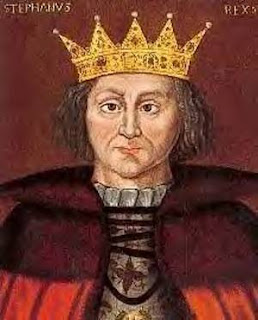The Significance of Ceremony
“The papacy.. continued to recognize Stephen as king. It could not do otherwise: however suspect Stephen’s ascent to the throne, he had undeniably been anointed, and that beyond question made him a king.” --Henry II, W. L. Warren, pp. 19-20.*Ceremony in the middle ages was a powerful thing. Even the hands of the pope were tied in the case of Stephen of Blois, who cleverly cut in line to the throne. The act of being anointed by the archbishop of Canterbury “beyond question made him a king.” In today’s terms, imagine after the 2008 presidential election, John Mccain convincing Justice Roberts to administer the oath of office to him instead of Barack Obama. He would certainly not have thereby been our new president.
In some ways it seems that signed contracts carry the legal weight that ceremony once did, but even they can be challenged. Ceremonies today (in the U.S.) are rituals that formally recognize some change, but are never the legally binding acts that contracts are. Even the marriage ceremony, the most traditional rite in our culture, requires a license (contract). Our ceremonies are signals and not agents of change.
In the church I grew up in, the ritual of baptism was held sacred in a very medieval way. It was that act that “beyond question” washed away all sin, but our modern American minds strove to dissect the magic. We asked earnest, hypothetical questions in our Sunday school classes: what if someone dies in the middle of the ceremony, while they are still under water (we baptized by immersion)? What happened if they committed a sin while under water, would it still be washed away? Somehow the answers were less memorable than the questions.
Understanding remote times and places requires knowing what the events meant in the culture in which they occur.
*Under Henry I, the barons of Normandy and England had sworn allegiance to his daughter Matilda, who was his choice to succeed him. After the old king died however, Stephen of Blois, the king’s nephew, swiftly moved to take the throne himself. Hugh Bigod, a powerful baron in England went to Canterbury with Stephen and swore to the archbishop that on his deathbed, Henry had released the barons from their oath and designated Stephen as his successor. There were no witnesses to the event and Bigod’s presence at Henry’s death was even in question, but on Hugh’s testimony, the archbishop coronated Stephen before a handful of witnesses and the coup was successfully concluded.
It is not just time that separates us from the reign of Stephen of Blois, there is also an ocean. America was a print culture from the outset, when most of Europe was still very much an oral culture.

Comments
Post a Comment